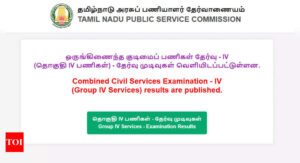Recently, tech giant Microsoft has announced significant layoffs in its DEI team.The decision was part of a broader cost-cutting measure amid economic uncertainties. However, the move has raised many eyebrows and posed a question on Microsoft’s commitment towards diversity and inclusion. Similar to Microsoft, Google also reduced its workforce, impacting its DEI team. The layoffs were part of a strategic shift to streamline operations and prioritize core business areas. Zoom, known for its rapid growth during the pandemic, also faced the need to downsize.
The DEI team was among the affected departments as the company adjusted to a post-pandemic business environment. These layoffs highlight the precarious nature of these roles, even in companies that have publicly committed to fostering diverse and inclusive workplaces. The downsizing of DEI teams by Microsoft, Google, and Zoom have also sparked discussions about the sustainability of DEI roles during economically challenging times. However, there are certain perks of being part of a DEI team as well. Read on to delve into the benefits and potential downsides of being part of a DEI team in today’s corporate landscape.
Being in a DEI team: 3 reasons to love your job
As already mentioned, there are various benefits and advantages of being part of a DEI team. Here is a look at them.
You get to create inclusive policies: Yes, that’s true. DEI teams have the unique opportunity to shape policies that foster a more inclusive workplace. This includes developing strategies for recruiting diverse talent, promoting inclusive leadership, and ensuring equitable pay and promotion practices. By advocating for underrepresented groups, DEI professionals become the shaping spirit behind the creation of a work culture where all employees feel valued and included. This is crucial for job satisfaction.
You develop essential skills and get the right exposure: Working in a DEI team can bethe stepping stone for honing various skills, including conflict resolution, cultural competence, and strategic planning. These skills are not only valuable within the DEI domain but are also transferrable to other roles. Also, DEI professionals often work closely with top executives and key decision-makers. This visibility can lead to greater influence within the organization and opportunities for career advancement.
You have the scope of building a strong network: Being part of a DEI team involves collaborating with various departments, leading to a broad network within the organization. This role involves external engagement too. People with DEI roles frequently require to touch base with external stakeholders, including community organizations, industry groups, and diversity-focussed events. This offers a great scope to widen professional networks and open doors to new opportunities.
DEI team members: 3 reasons to be cautious
One of the major dangers of joining a DEI team is lack of job security. This job can also expose employees to the risks like backlash, tokenism, emotional exhaustion, and interpersonal conflicts. Here is a detailed overview of the potential risk factors.
Job Security Concerns: As seen with the recent layoffs at Microsoft, Google, and Zoom, DEI teams can be vulnerable during economic downturns. Despite the growing emphasis on diversity, equity, and inclusion, these roles are sometimes viewed as non-essential when companies face financial challenges. Organizational priorities can shift too, and DEI initiatives may not always be at the forefront. This can lead to reduced budgets, diminished support, and potential job cuts.
Emotional Toll: Advocating for DEI can be challenging, particularly in environments resistant to change. DEI professionals often face pushback from colleagues who may not fully understand or support these initiatives. Moreover, being on the front lines of addressing bias and discrimination can be emotionally draining. DEI professionals frequently encounter stories of inequity and must work diligently to address systemic issues, which can take a toll on their well-being.
Measurement and Accountability Challenges: Measuring the impact of DEI initiatives has been found to be difficult. Unlike sales or productivity metrics, the success of DEI efforts often involves qualitative measures, such as employee sentiment and cultural shifts, which are harder to quantify.
As DEI teams are held accountable for driving change, the pressure to demonstrate progress can be intense. This is compounded by the fact that meaningful change often takes time and may not yield immediate, visible results.
DEI jobs: Balancing the perks and risks
Being part of a DEI team in today’s corporate architecture comes with its own set of merits and demerits. While the job of a DEI offers the chance to make a significant impact and drive meaningful change, it has its pitfalls too, the most prominent one being uncertainty. The recent layoffs at tech giants like Microsoft, Google, and Zoom reflect the precarious nature of these roles. For DEI professionals, balancing the perks and risks involves strategic advocacy, fostering resilience, and continuously adapting to an evolving landscape. By navigating these challenges effectively, they can continue to champion diversity, equity, and inclusion in the workplace, even in the face of adversity.





